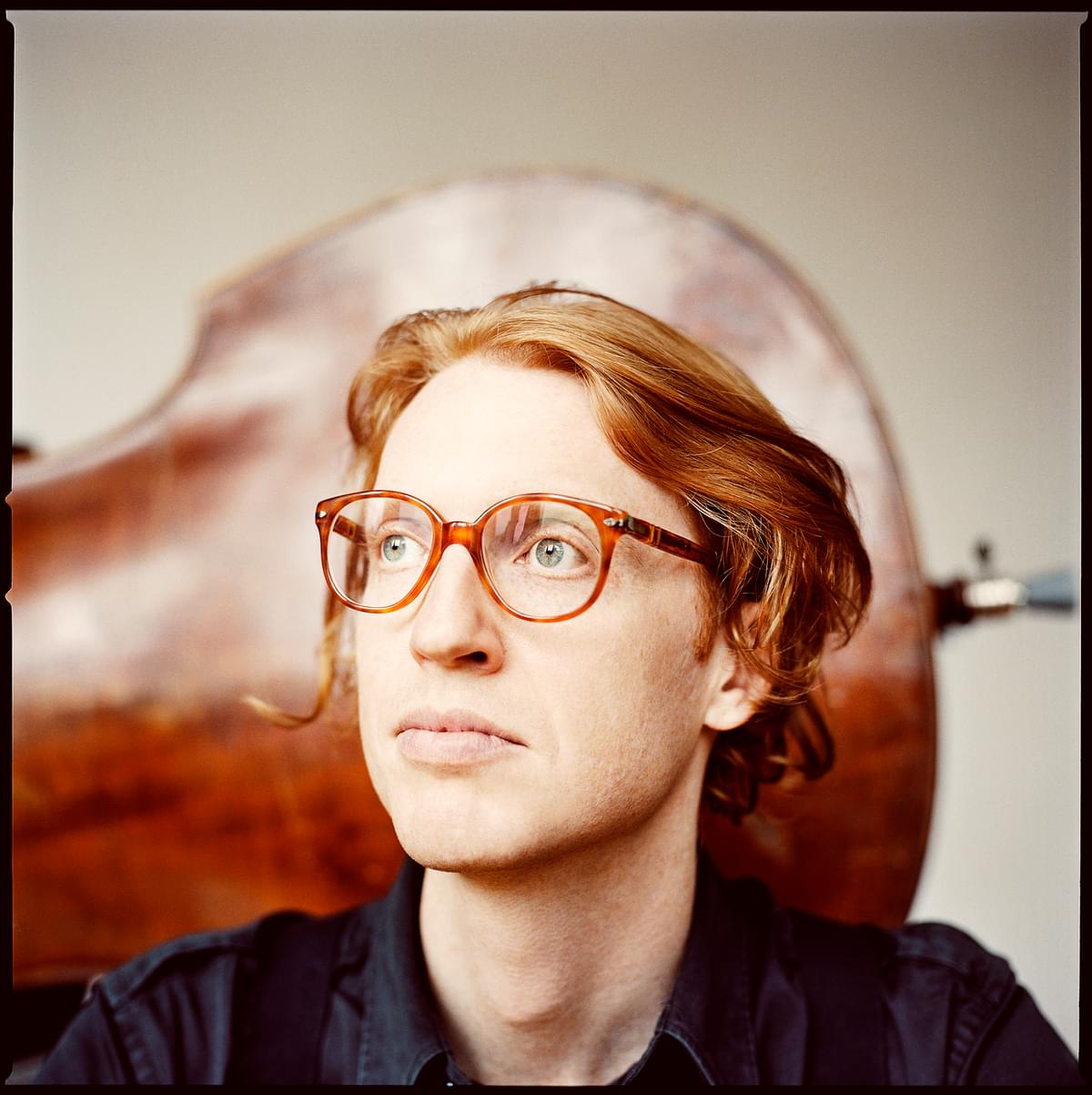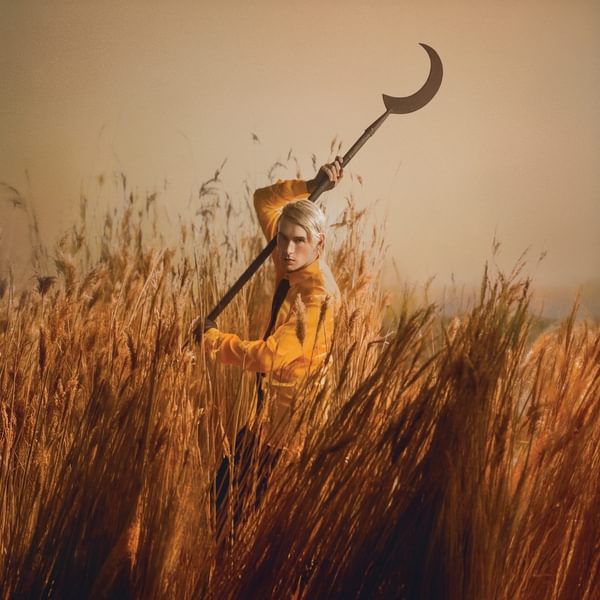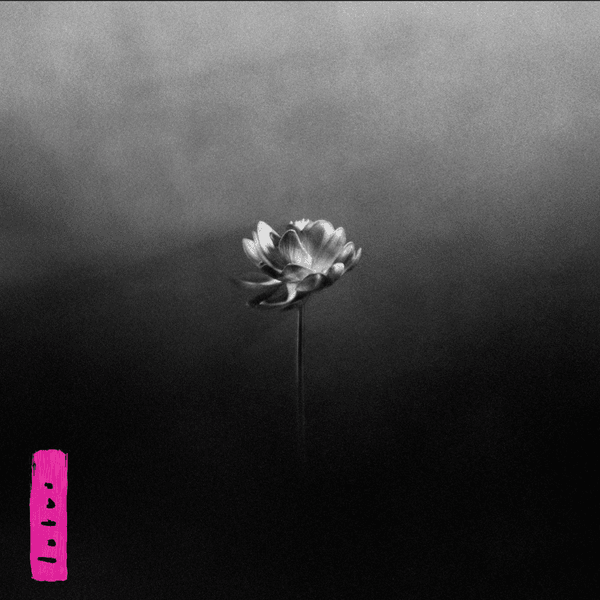
Richard Reed Parry: "I love exploring the total opposite of what I’m doing in a rock band"
“Everything about Arcade Fire is pretty intense, as you can imagine, and I feel like this is very much a counterweight to that.”
Richard Reed Parry, officially speaking, is a ‘multi-instrumentalist’ in Arcade Fire. For all intents and purposes, though, he is their guitarist. Or - to put it another way - he plays lead guitar in one of the biggest rock and roll bands on the planet.
Not that there’s any indication that it might have gone to his head, of course. He’s incredibly modest, certainly not coming across as the type that might wake up one morning and decide that it’d be a good idea to start calling himself something like The Edge. Similarly, he keeps himself busy enough, during any off-time from the band he does manage to carve out, that I can’t imagine he’ll be falling out of many coconut trees any time soon.
Instead, he pours any holidays that he does manage to book from the Canadian indie behemoth into his long-standing predilection for classical music. “I loved Bach so much when I was growing up,” he tells me with an earnestness hardly befitting the status that his day job affords him. “Benjamin Britten, too.” Parry’s latest project, though, is something that might see him surpass both in terms of sheer inventiveness.
Music for Heart and Breath is a collection of classical pieces, held together by one key discipline in terms of the way they’re played; every member of the performing ensemble on any given track is playing either in harmony with their own heartbeat or pattern of breathing, or operating off of cues from a composer, directing proceedings according to their own vital signs. The record is dropped right in the thick of a huge summer of Reflektor promotion for Arcade Fire, but it’s certainly no rush job on Parry’s part; as he tells me from his Barcelona hotel room, just a few hours after headlining Primavera Sound, these compositions have been coming together for years now, with the initial concept even older.
“The idea is about a decade old now, I guess,” he tells me, shortly after making me feel just a modicum better about missing Primavera by assuring me that it’s grey outside. “I wrote the first piece - ‘Duet for Heart and Breath’ - back in 2005. That was very, very quick, in an afternoon; I was in the middle of a residency with my band at the time, Bell Orchestre. We’d been on a long hiatus whilst I was on tour with Arcade Fire, and I’d been asked to write a piece of music for two performers; it was kind of a vague brief. I decided to go with the heart and breath idea, and I was so happy with the way it turned out that I was suddenly convinced I was going to write a ton more of this music.”
Real life, though - if you could possibly call it that - conspired to get in the way. “I went back out on the road with Arcade Fire, and time passed, and it was another couple of years before I was able to come back to it. I performed at the MusicNOW festival in Cincinnati, and suddenly, I felt like I had an excuse to get some more of those kinds of pieces written. I was commissioned to come up with something for a compilation called From Here On Out, and from there, I gradually just seemed to get asked to write more and more - it was this natural, organic progression.”
All of this, too, comes in spite of the fact that Parry has little in the way of classical training; any idea that he might be a privileged tearaway coming back to what he knows best is something that he can be shot down straight away. “I’ve not been taught any of this stuff, certainly not in any kind of thoroughbred way,” he says. “I had piano lessons when I was little, and I was always surrounded by music growing up, so maybe there was something in that. My first kind of formal education was going to university to study electro-acoustic music, which was kind of like going to art school, but with a proper focus on sound.”
“Even so, my skills are still super sketchy. I have just about enough knowledge to put pen to paper, or put notes on a score. I mean, I’ve played enough music, I guess, in enough different ways to make it all work, but it’s definitely a case of looking at some of the other players and thinking, “there but for the grace of God go I”, you know? It’s been incredible to have so many people available to help me pull this thing together. For the other performers to be a) very high-calibre musicians, and b) totally understanding and forgiving of my ability - the patchiness of my terminology, and the difficulty I have making quick changes - that’s been really vital for me.”
Not that Parry’s time in music college had no bearing on Music for Heart and Breath; in fact, it was his experiences there that moulded the concept, even if unintentionally. “The whole idea just came from being in school, and finding myself unable to really engage with any of the music that we were studying,” he recalls. “There was all this electro-acoustic music, and I just found that it totally disconnected me with anything physical. I’ve always really been excited by stuff that felt really visceral, that really took over my physical self in some way. As a result of that, when I found myself in a class, listening to music that was so abstract that it was divorced from any sense of real presence, my mind began to wander; I started to think, what would be the opposite of this? What could I create that would be the most in-your-body music possible; I mean, what would that feel like?”
The key to truly shaping Parry’s vision, though, lay with his influences - some of whom he might now consider to be contemporaries. “I was really into John Cage, at that time, and I was super into Brian Eno, as well. I really got into that Eno way of thinking, where the brain itself is the small brain and the body is the large brain; the best music, according to thst idea, should always engage primarily with the large brain. I just found myself thinking, what if you had these uncontrollable large brain factors involved in the music? I wanted to bring in something that was independent of my own writing, the same way Cage would base compositions around the shuffling of a deck of cards.”
“It seemed so obvious - what if you had to obey your hearbeat, or your breathing, or your blinking? The blinking went out of the window, eventually, but I just thought that it seemed so compelling, like a totally new kind of music. I was shocked that nobody had done it earlier, and this whole time, I’ve kind of had bated breath, hoping that somebody else wouldn’t have the idea at the same time as me.”
Implementing such a challenging concept into the actual recording process, though, was always going to demand something unconventional; a post on Parry’s fledgling Instagram page has one of his ensembles showing off stethoscopes in between takes. “Every musician is either playing their heartbeat or their breathing; always one or the other. Sometimes, they’ll be basing their playing around cues by somebody else - a composer, listening to their own heartbeat or breathing - but even then, you have to worry about overlapping. So, yeah, it’s a bit of a rigmarole. It’s such a tough job as a musician, to be playing, and have other people around you playing, and to be trying to tune into your own body at the same time. There’s some serious mental gymnastics involved.”
So crucial were those considerations, in fact, that at points on the album, you can hear the sound of breathing in the background. “I didn’t want to actively bring that out. I wasn’t planning for you to be able to hear those heartbeats being amplified, or anything like that, but that’s actually kind of a natural thing that happens when you’re recording classical music. You really notice it more when you’re listening back. I think, because of the nature of the pieces, people were breathing a little bit more deliberately. There’s a couple of pieces where there were specific cues to take a breath here or there, so it was always bound to be fairly pronounced on the recording I guess. I don’t know; it would’ve seemed a little bit disingenuous to cover that up.”
There was no blunt separation of worlds when Parry finally came to record Music for Heart and Breath; evidence of his ties to the more conventional sphere in which he usually operates is provided by the contribution of Bryce and Aaron Dessner of The National to the record; Bryce, of course, is already well-versed in the fine art of balancing a career with one of the planet’s premier indie rock bands with a long-standing interest in classical music.
“Well, that festival I mentioned, MusicNOW - Bryce founded that, and he runs it,” Parry explains. “I’ve been going there for years now, usually as a participant of some sort, and a couple of the pieces on the record were commissioned for it; ‘Quartet for Heart and Breath’ for Kronos Quartet, and ‘Heart and Breath Sextet’ for yMusic. From the get go, Bryce has been a major supporter of mine, a real advocate; it’s great to have that, to have somebody in your corner saying, “come on, you have to finish this!” We ended up doing a few festivals together later on, and I feel like I really wrote the nonet - the ‘Interruptions’ piece - to play with them. We just collaborate really easily together - I’ve played on the last couple of National records - and now Bryce and I are working on a big choral performance for next fall. It’s just always been a case of looking for excuses to work together, really.”
The selection of the actual ensembles that play on Music for Heart and Breath, meanwhile, was a little more straightforward. “It seemed obvious to retain Kronos Quartet and yMusic for those pieces that I commissioned for them, and thankfully, they were available. I did a concert with yMusic where they played quite a bit of this stuff, and they’ve probably ended up on about half of the record. I worked with Nico Muhly, too, on a night that he was curating with Jonny Greenwood for the Kitchener Waterloo Symphony, so it was natural that when the time came to re-record those pieces, he’d come in and play. I mean, as much as I wanted the album to be cohesive, I did feel like I needed to bring all the little pieces together.”
So much of Music for Heart and Breath was born out of live performance - at The National’s ATP in December of 2012, Parry performed solo work extensively - but he insists that live replication was never the ultimate goal. “I don’t think it’s ever been essential, although I really have to think that way, because things are so difficult to organise. There’s bound to be a handful of shows, as and when I can manage them, but there’s obviously no real scope for me to tour the record. As far as the players are concerned, it’s supposed to be flexible; it doesn’t need to be one ensemble. The aim is really to create something unique, that different groups of musicians can play, and that’s already happened, to some extent. Just to be able to slot in this whole initial round of, first of all, getting people interested in playing it, and then trying to engage with listeners, has been fantastic; I’m honestly happy if that’s all I can manage, because it’d be impossible for me to take anything on full-time.”
He’s referring, of course, to the sheer impenetrability of his schedule with Arcade Fire, although he insists that the balance between the two is something that he relishes. “Musically, they’re extreme opposites. Not just in terms of how they sound, but in relation to the experience for me personally, too. Honestly, that’s sort of the point. As far as life experience, music, and performance goes, I need something that offsets Arcade Fire. It’s almost like I was thinking, “OK, what’s the quietest, most introverted, sensitive, small-sounding music I could make? How can I make something that’s contemplative, and intimate, and fragile? I really view that balance as being crucial.”
“As wonderful a career arc as I’ve had with Arcade Fire - and I’m delighted that it’s gone the way that it’s gone, obviously - it’s only ever been one facet of my musical life. I keep pushing myself to do more; I’ve been writing orchestral music, and choral music, and I know that I need to put out another volume of the heart and breath stuff - it’s so new, and I feel like I’ve tapped into such a rich creative vein with it. I feel like the further I go with Arcade Fire, the further I’ll go with this; I love exploring the total opposite, musically, of what I’m doing in a rock band.”
Music for Heart and Breath is available now. Richard continues to tour with Arcade Fire - dates here.
Get the Best Fit take on the week in music direct to your inbox every Friday

Patrick Wolf
Crying The Neck







